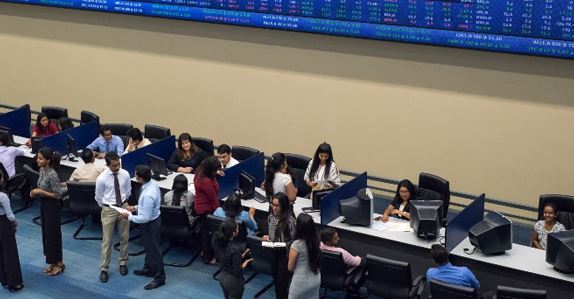April 27 (Bloomberg) – Sri Lanka stocks rallied, marking their first day of gains since April 5, after the World Bank said it will allocate funds to ease the nation’s economic crisis.
The Colombo All-Share Index ended 6.8% higher, after losing about 15% in the past two days. The bluechip S&P Sri Lanka 20 Index surged 14%. Trading had to be suspended in the prior two sessions within minutes of the open as the S&P gauge fell by its daily set limit.
For similar articles, join our Telegram channel for the latest updates. – click here
“The selloff has driven investors to buy stocks at a cheaper price but it is still a short-term trader’s market with uncertainties on the horizon,” said Naveed Majeed, senior vice president for research at Asia Securities in Colombo. The World Bank aid is a near-term positive to mitigate the gap of essential goods.”
The World Bank will extend $600 million in financial assistance to Sri Lanka, according to a statement from President Gotabaya Rajapaksa’s office. The nation is also seeking funding from creditors including India, China and the International Monetary Fund after dwindling foreign reserves and soaring inflation led to an economic and political crisis.
Relief over the World Bank aid reflected in rising stocks didn’t feed through to the bond market. Sri Lanka’s dollar bond due in July was indicated little changed at 46.1 on the dollar by 3:10 p.m. in Singapore as bond investors awaited details on a debt restructuring linked to a potential IMF loan. The notes have traded in a narrow range between 45.1 to 48.7 over the past two weeks. The rupee weakened 1.4% to 346.46 per dollar.
Trading in Sri Lankan equities was halted for the previous two weeks — the first week due to a holiday and the second by the securities regulator — the central bank hiked policy rates by a record, the government halted payments on foreign debt, while rating companies slashed the nation’s credit rating.
Rajapaksa and the cabinet are moving toward reducing his wide-ranging powers as opponents seek to oust his family over alleged mismanagement that has pushed the economy into its worst crisis since the country gained independence more than 70 years ago.
The IMF has been nudging the government to tighten monetary policy, raise revenues, and pursue a flexible exchange rate as part of broader fiscal and debt management reforms required to unlock aid financing.
Subscribe to our Telegram channel for the latest updates from around the world





























































